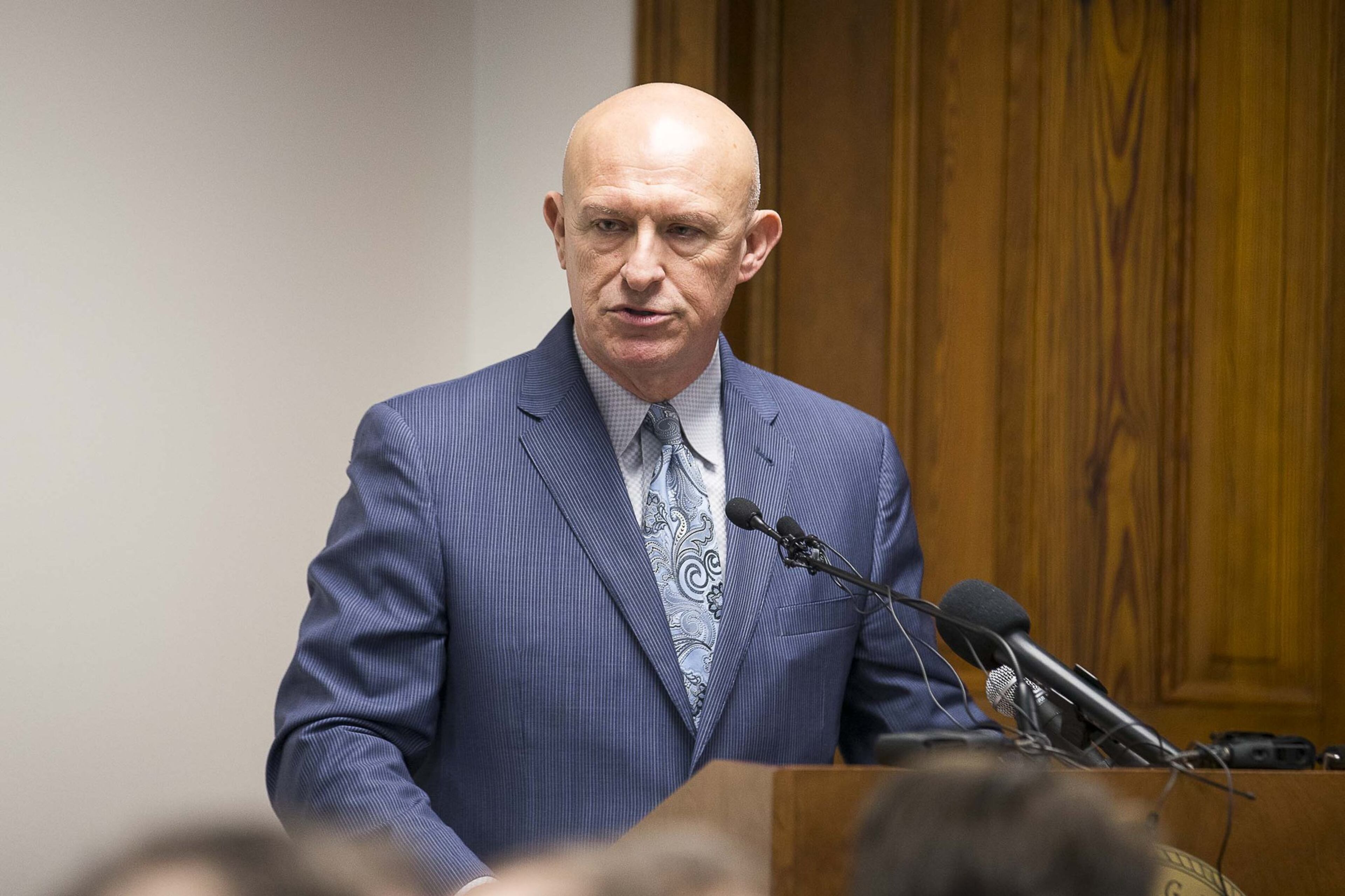Lawmakers question plan to privatize GBI lab testing, cut positions

The GBI is considering outsourcing much of its lab testing as the state contemplates cutting nine vacant scientist positions.
GBI Director Vic Reynolds on Monday spoke in a budget hearing, telling state lawmakers the agency can lose the positions and still attack longstanding testing backlogs if private labs are hired for tests in small-time drug and property crime cases. The proposed cuts are just one idea in Gov. Brian Kemp’s budget proposals that’s been met with skepticism this year; legislators abruptly voted to recess last week so the House can hash out the budget.
Reynolds worked to calm legislators’ worries about the proposed crime lab cuts.
He said the cases where the testing would be outsourced are low-level ones that are unlikely to go to trial. Such cases make up 77 percent of the tests the GBI is asked to do by law enforcement around the state. But the idea of not filling vacant positions puzzled House members at a time when the GBI is still facing backlogs, said Rep. Andy Welch, R-McDonough.
“That is concerning to the House,” Welch told Reynolds. “I appreciate what you’re trying to do in terms of cost savings.”
As of last week, the GBI’s total backlog of cases awaiting testing was 46,000, up from 36,000 back in October, which was up drastically from a few years earlier.
Lawmakers recalled testimony from other GBI officials last week, who said the labs get 200 new sexual assault kits every month but still can't process more than 110 a month. Rape kit testing is a sensitive topic considering the controversy that surrounded Georgia law enforcement in 2015 after 1,351 untested kits were discovered in storage at Grady Memorial Hospital. Others turned up in evidence rooms around the state. The GBI completed testing on the kits in November 2018.

The GBI operates seven labs around the state, but most don't offer the full range of tests required by many cases. Only the main lab located outside Decatur has scientists trained in all areas, such as chemistry, firearms, DNA, fingerprints, toxicology and trace evidence. In recent years, the labs, which have more than 150 scientists in total, have gotten busier — and slower — due to the opioid epidemic and the GBI's commitment to investigate nearly all officer-involved shootings in the state.
“For several years we talked about the difficulty of getting scientists on board and how badly they were needed,” state Rep. Al Williams, D-Midway, said to Reynolds. “Why now are we able to eliminate nine?”
Reynolds said the GBI has nine other scientist positions it is filling. He also said he doesn’t want to continue the traditional of regularly asking for more scientists because the backlogs have persisted even as more have been added.
“I came to a conclusion,” he said, “that, respectfully, the lab needs to do things a little differently.”
He vowed not let that the sex assault backlog grow to the levels seen a few years ago. Outsourcing tests on on suspected drugs and DNA tests in property crime cases would allow the GBI’s scientists to focus on more serious cases, such as homicides and sex assaults. One private lab the GBI has already worked with estimates that it could do 1,000 tests per month with a 30-day turn around on results, Reynolds said. The GBI labs are often much slower.
It isn’t clear how exactly much the outsourced testing would cost, but the GBI is working on those figures.
Rep. Mandi Ballinger, R-Canton, asked the director if there could be concerns with the chain of custody of samples sent to private companies rather than state workers. Reynolds said the GBI would ensure any company it partners with is trustworthy.
He acknowledged that, if a case involving testing by a private firm goes to trial, an employee of the firm would likely have to be paid to testify. But overall he expects the agency to save money.


